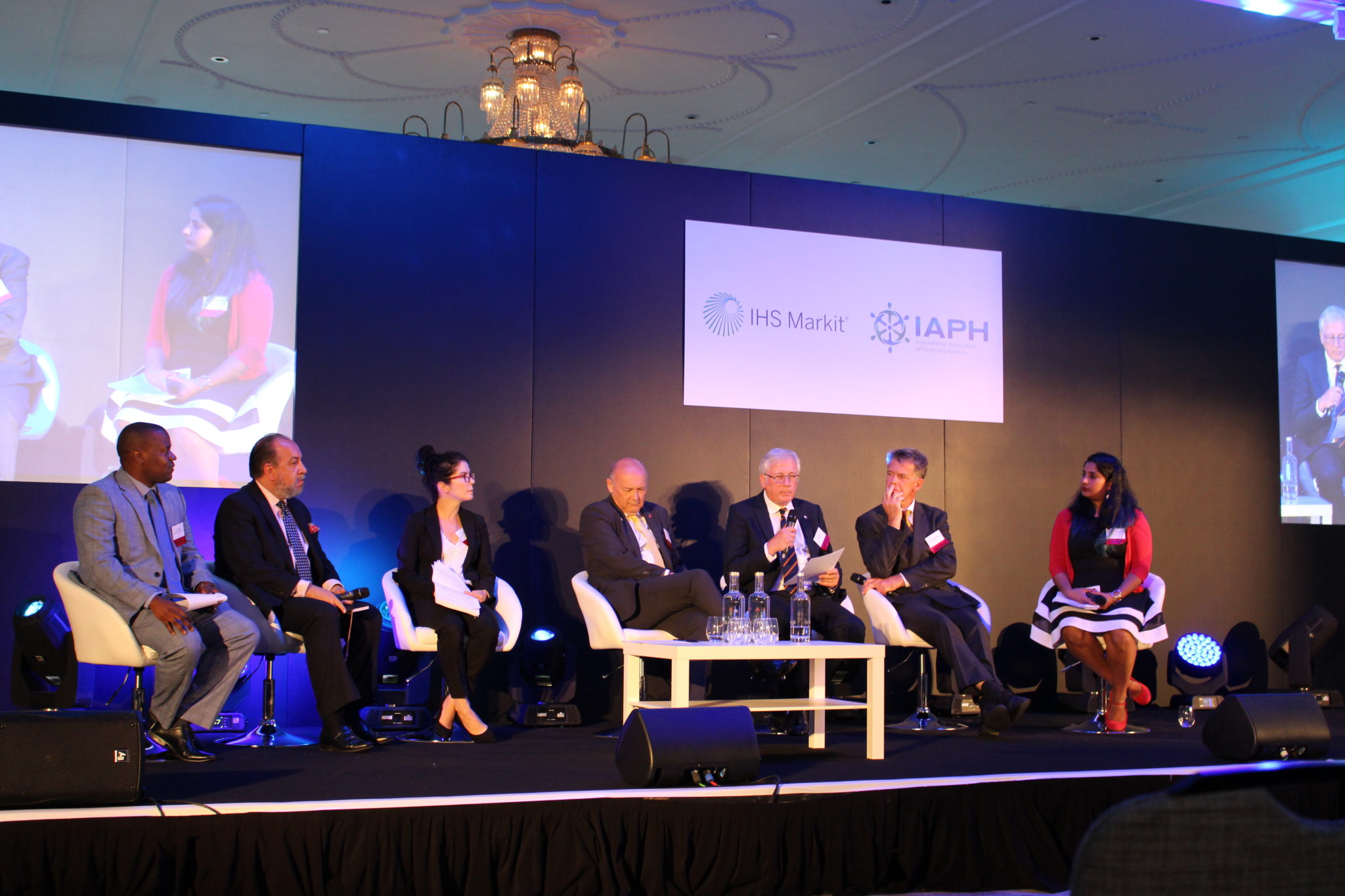Who’s afraid of port call optimisation?

It should be clear by now, shipping’s decarbonisation challenge does not stop with the ship. The degree of optimisation required to enable the industry to meet even the first of the IMO’s carbon intensity reduction targets, will call for a fundamental reshaping of how vessels and ports interact.
Ports are of course incredibly efficient, or would be without ships. While vessel queues stretch over the horizon, or ships arrive to wait tugs or find no berth available, so carbon as well as pollution emissions rise.
But, as afloat, there are challenges ashore. Slowing down or speeding up vessels to optimise port calls has contractual and legal implications as well as commercial ones. There is good money to be made from the inefficiencies in shipping, profits which are threatened by transparency and visibility.
But so serious is the need to improve efficiency that an international taskforce bringing together ports, carriers and industry associations has been establish to develop the standards that could make it easier to improve the efficiency of the average port call.
When publisher IHS Markit brought together the stakeholders to discuss progress as part of London International Shipping Week, there was an encouraging consensus about the way forward, even if there was still a lot of cargo left to shift.
To begin at the beginning, whose problem is this, one for local authorities or global regulators? Clearly, any work aiming to set targets needs to be collaborative whether or not it is subject to local or global regulation.
To some it’s an initiative that must be driven from the bottom up, albeit with IMO’s blessing; the risk being that asking IMO to intercede is that industry doesn’t get the answer it wants. The sector’s experience and expertise is something that shouldn’t be overlooked according to Ben van Scherpenzeel of the Port of Rotterdam.
Key to the project’s success is the standardisation of terms, a process to which organisations including UKHO, BIMCO, ICS and others have signed up. Scherpenzeel added that an industry working so used to paperwork should be able to implement a small set of standards as a first step forward.
Clearly a one-size solution is not going to work, the size and profile of so many different ports means that more evaluation is needed on how to develop the right standards.
International Marine Pilots Association Secretary-General Nick Cutmore suggested that the IMO should be set the high level objectives but let the ports handle the practical implementation, allowing for a goal-based approach.
In such a disparate industry, it will be a challenge to account for every vessel type and sector and the project will also require considerable sums being invested, not least to upgrade communications from ship to shore, without which ‘just in time’ is not possible.
But for shipowners as well as ports and others, the investment required in optimisation will require both clear incentives and a regulatory driver. The latter probably makes sense for a small shipping company used to be pushed but there is less clarity on the benefit without a return on investment.
That poses the bigger question of how far the industry is onboard with the benefits of digitalisation. At this stage it’s a conversation between big ports and larger container lines but as some stage it’s going to have to extend to the majority of the shipping industry.
Digitalisation has often been noted, requires secure sharing of information in a way that protects data privacy but also creates greater transparency. That comes with risk around the integrity of the data itself, who it is shared with and how will it be used, processed and stored.
Only when the willingness to embrace that concept does the trust exist to make it possible. As Patrick Verhoeven of the IAPH pointed out, the industry needs to overcome that resistance and learn the lessons of the IMO DCS and EU MRV data collection processes and how they can be applied to ports.
In the context of lower emissions, port call optimisation has political momentum, but without an IMO framework, there will be no credibility; the industry needs case studies and desktop exercises to demonstrate the benefits to owner, agent, terminal and port alike, he added.
To Jonathan Williams, General Manager of brokers and agents association FONASBA, it’s the agent who will play the crucial role; optimisation has been on their agenda for years.
Ship agents communicate with everyone in the management of a port call but Williams pointed out there was little they could do to stop a ship arriving too early for its berth but within its laytime and cancellation commitments.
Agents already advocate a sort of just in time shipping, advising owners how to best time their arrival, whether the terminal will need overtime, but as he stressed it’s a very commercial equation fraught with unforeseen issues.
Other regulatory instruments are in play, including the ‘single window’ process of electronic document interchange, with a system already in effect, noted Helio Vicente, policy advisor to the International Chamber of Shipping.
If the IMO’s single window process had a fault it was almost too ambitious in trying somewhat optimistically to be truly international in scope when bilateral agreements are simpler to agree and use as frameworks, he noted.
The IMO’s Camille Bourgeon said the single window as developed had the advantages of being a centralised, technology neutral system with international interoperability, which was supported by the FAL Committee approval on an updated Compendium on Facilitation.
FAL also moved the focus of the single window concept from a technical discussion on formats to agreement on an internationally harmonised data set. As Nick Cutmore pointed out, many ports have different terms for what constitutes ‘arrival’ so the harmonisation of data for single window and navigation data remains a pressing and daunting challenge.
